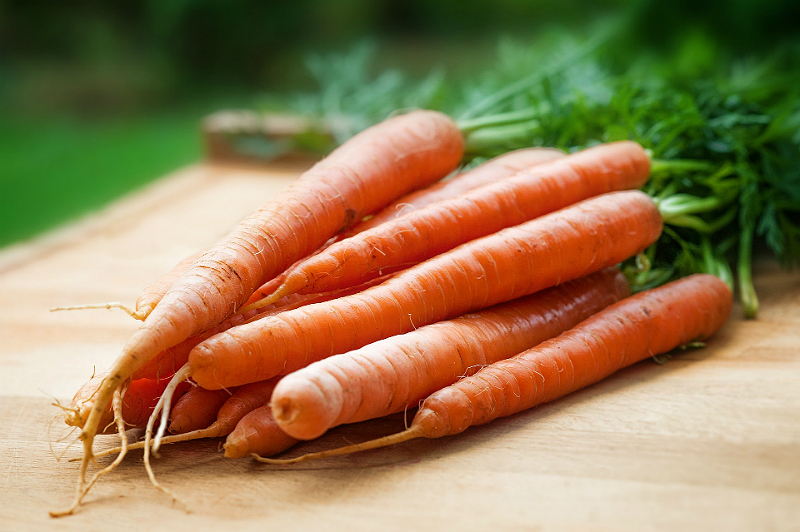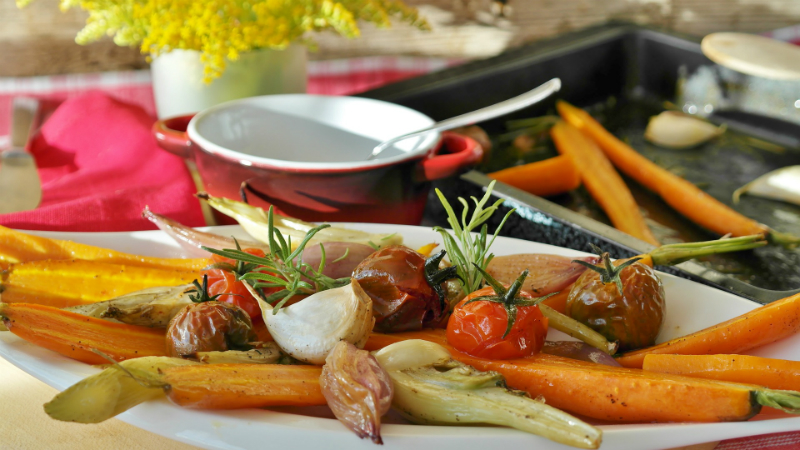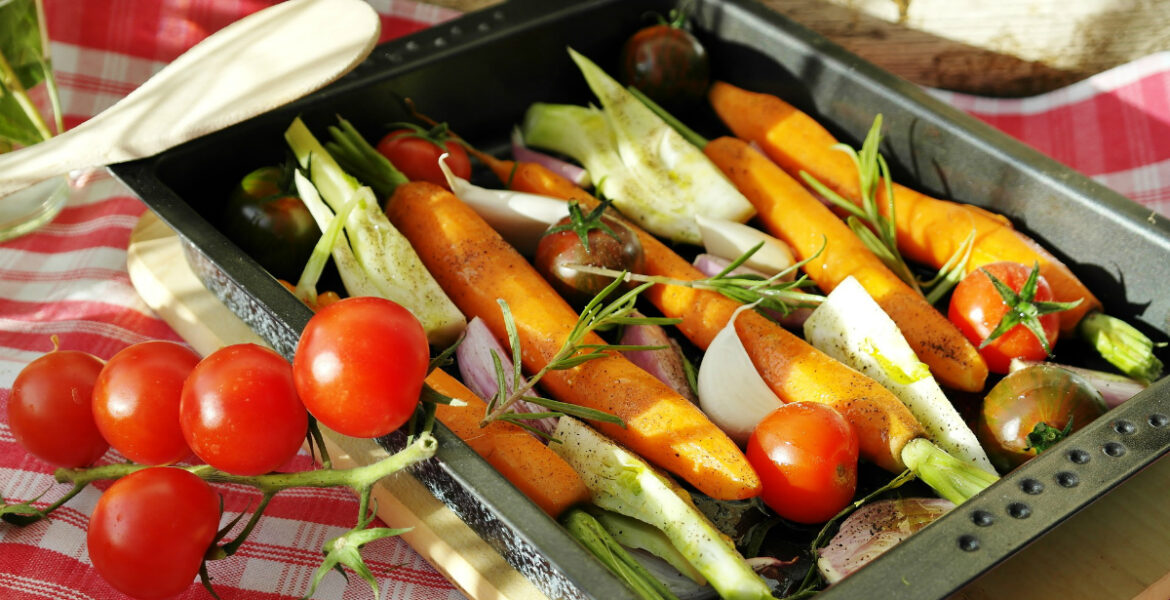Since March is National Nutrition Month, it’s a perfect time to learn how to eat healthy and boost your wellness. From expert advice from Registered Dieticians, Doctors, and Health & Wellness Experts on which foods to eat (and which ones to avoid) to unique home-delivery healthy food services that make it easy to eat healthy and get the vital nutrients you need, here are effective, simple changes you can make in your daily diet that will encourage you to eat healthy and be well.

Tip # 1: Eat Lean Protein
Dr. Caroline Apovian, the Director of the Nutrition and Weight Management Center at the Boston Medical Center, a professor at the Boston University School of Medicine, New York Times Best-Selling Author of The Age-Defying Diet, and VP of The Obesity Society, touts lean proteins, such as Salmon, as a healthy food to consume. “Your body expends more energy and burns more calories to digest proteins as opposed to carbohydrates. Lean proteins are best for weight loss, and fish have the added benefit of being high in omega-3 fatty acids. Omega-3 fatty acids reduce inflammation in the body, improve the body’s ability to burn fat, and help keep us feeling full longer. Salmon is an excellent choice, providing an impressive 33 grams of protein for a mere 262 calories per serving.”
Tip # 2: Eat Whole Grains
Dr. Apovian goes on to say, “Opting for whole grains over refined grains burns nearly twice as many calories during digestion. More energy is needed to digest the fiber content in whole grains. In addition, the process that refines grains into white flour, pasta, bread, and other processed foods strips away the naturally occurring nutrients, fiber, and protein that your body needs. There is some confusion about the relationship between whole grains and weight loss due to the gluten-free movement. Physicians advise some to avoid gluten for allergy-related reasons, not for any weight loss-related advantage. I recommend that my patients consume about a half cup of cooked whole grains each day.”

Tip # 3: Minimize Sodium Intake
Dr. Robert Huizenga, an Internist and Associate Professor of Clinical Medicine at UCLA, is best known for his surgical-free, drug-free approach to obesity, which he has championed over the last 16 seasons of The Biggest Loser. He also runs The Clinic by Dr. H – a state of the art, multi-disciplinary fat loss facility in Malibu, California and has authored two books. To help you eat healthy, he recommends minimize sodium intake. He says, “We should be getting 2,300 mg or less of sodium. For those with high blood pressure, the daily goal is less than 1500 mg of sodium. Remember, more than 3/4 of the sodium we get comes from processed food or restaurant meals, less than 1/4 from added salt at home.”
Tip # 4: Eat More Plant-Based Foods
Jennifer Bowers, PhD, RD is a doctoral-level registered dietitian & nutritionist and writer in Arizona who recommends adding more plant-based foods to your diet. “Aim for adding at least 5 servings of fruits and vegetables to your day… and, more is better! Think beyond the apple and banana in your lunch. Try butternut squash and black bean tacos. Add kale or spinach to a soup at the end of cooking. Be adventurous and experiment with one uncommon fruit each week. Grill up some portobello mushroom burgers. Mix shredded zucchini into your favorite quick bread.”
To help you eat more plant-based foods, a plant-based meal delivery service, such as Veestro (that offers meal packs such as Meatless Monday and Juice Cleanse packs), can provide you with delicious and nutritious options to help easily kick-start a healthy eating routine during National Nutrition Month. Following a plant-based diet has many health benefits including lowering the risk of diseases such as diabetes and cancer. Additionally, plant-based eating can help stimulate weight loss.

Tip # 5: Use Healthier Cooking Oils
Rebecca Lee, a Registered Nurse and founder of RemediesForMe.com, a site that sheds light on natural remedies for various ailments, recommends using healthier cooking oils, such as coconut oil or avocado oil. “Coconut oil contains healthy fats that are good for weight loss, brain health, and numerous other health benefits. Coconut oil is made up of medium chain triglycerides (MCTs) which are metabolized differently in the body than most fats. Unlike other saturated fats, the American Journal of Clinical Nutrition reports that coconut oil is healthy for the heart. It lowers your bad cholesterol (LDL & triglycerides) while raising your good cholesterol (HDL). Lowering your bad cholesterol lowers your chances of heart disease and stroke. Another healthier cooking oil to use is avocado oil, which is one of the healthiest foods in the world. Oils made from avocado have a high heat index, which makes it ideal for cooking. Most of the fats contained in avocados consist of oleic acid, which is a monounsaturated fatty acid, believed to have anti-inflammatory benefits.”
Tip # 6: Eat Colorful Foods
Neka Pasquale, founder of anti-inflammatory organic meal delivery service Urban Remedy and nutritionist to celebs like Cindy Crawford and Angela Lindvall, recommends eating colorful foods. “One of the simplest ways to ensure your body gets all of the nutrients it needs is to eat fruits and vegetables in the full spectrum of colors. Nature has its own color-coding system, with different compounds creating different hues in our foods. For example, beta carotene is responsible for the yellow-orange pigment in carrots and, when consumed, is converted by our bodies into Vitamin A, which supports eye health. Reminding yourself to Eat the Rainbow can help guide you to make healthier choices throughout the day. Keep a mental checklist, tracking how much red, orange, yellow, green, purple, and white plants you’ve eaten throughout the day, and choose accordingly at mealtime.”

Tip # 7: Eat More Leafy Greens
Dr. Gabrielle Francis is a Naturopathic Doctor, Chiropractor, Acupuncturist, and Licensed Massage therapist. She currently practices in New York City as The Herban Alchemist and also operates Backstage Alternative, which is her natural medicine road show that provides chiropractic, massage, acupuncture, nutrition and herbal remedies to performing artists (such as Steven Tyler, The Rolling Stones, Bruce Springsteen) on tour. She recommends eating more dark leafy greens, which are “great sources of magnesium (and) increase endurance by hydrating cells and optimizing energy. Magnesium can also reduce pain and inflammation, soothe muscles and repair damage. Adding dark leafy greens to your diet during PMS will aid with pain relief.”
For more health and wellness tips, check out the Diet & Nutrition section on Inspirations & Celebrations.


















